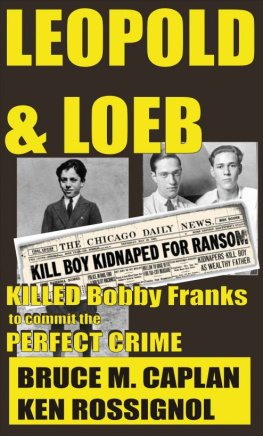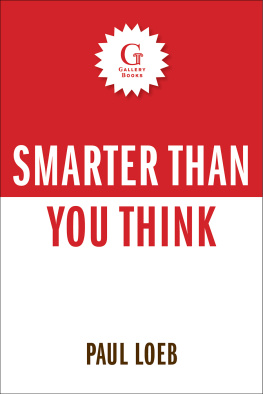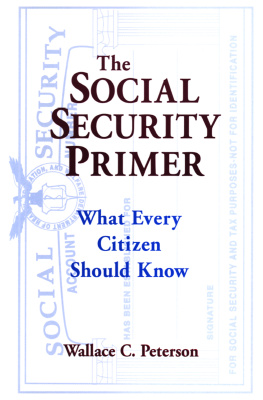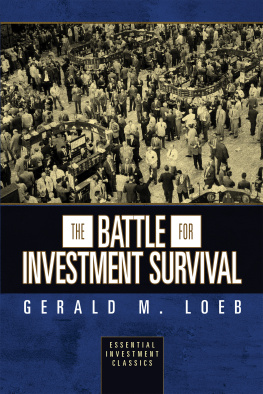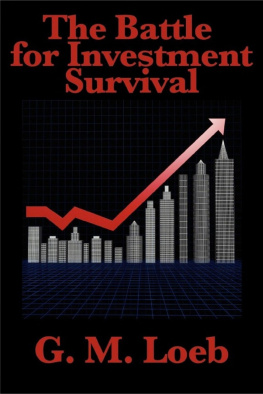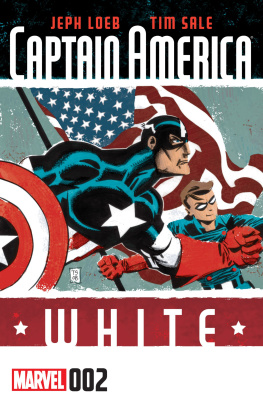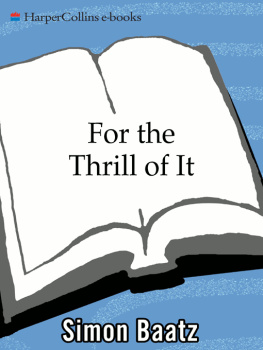If I am not for myself, who will be for me? And if I am only for myself, what am I?
RABBI HILLEL
W e can learn a lot from the tales we tell about our heroes. I once had the privilege of appearing on a CNN show with Rosa Parks. Were very honored to have her, said the host. Rosa Parks was the woman who wouldnt go to the back of the bus. She wouldnt get up and give her seat in the white section to a white person. That set in motion the year-long bus boycott in Montgomery. It earned Rosa Parks the title of mother of the civil rights movement.
I was excited to hear Parkss voice even though I didnt actually meet her, since we were being interviewed from different studios. Then it struck me that the hosts descriptionthe storys standard renditionstripped the Montgomery boycott of its context. Before the day Parks refused to give up her bus seat, she had spent twelve years involved with her local NAACP chapter, along with E. D. Nixon, an activist in the Brotherhood of Sleeping Car Porters union who was the head of the chapter; local teachers; and other members of Montgomerys African American community. The summer before, Parks had attended a ten-day training session at Tennessees labor and civil rights organizing school, the Highlander Center, where shed met an older generation of civil rights activists and discussed the Supreme Courts recent decision banning separate but equal schools. In the process, Parks also became familiar with previous challenges to segregation: Another Montgomery bus boycott, fifty years earlier, had successfully eased some restrictions; and a bus boycott in Baton Rouge had won limited gains two years before. The previous spring, a young Montgomery woman had also refused to move to the back of the bus, causing the NAACP to consider making her the centerpiece of a legal challengeuntil it turned out that she was pregnant and unmarried, and therefore a problematic symbol for a campaign.
In short, Parkss decision didnt come out of nowhere. Nor did she single-handedly give birth to the civil rights movement. Rather, she was part of a longstanding effort to create change, when success was far from certain and setbacks were routine. That in no way diminishes the personal courage, moral force, and historical importance of her refusal to surrender her seat. But the full story of Rosa Parks reminds us that her tremendously consequential act, along with everything that followed, depended on all the humble, frustrating work that she and others had undertaken earlier, and on the vibrant, engaged community they had developed in the face of continual hardship and opposition. Her actions that day also werent accidentalthe product of her feet being tired, as weve so often heardbut rather a deliberate effort to challenge injustice. Whats more, the full story underscores the value of persistence; had she given up in year three or seven or ten wed never have heard of her. Finally, it reminds us that Parkss first step toward involvementattending a local NAACP meetingwas as critical to altering history as her famed stand on the bus.
Heroes like Parks shape our images of social commitmentof how change actually takes place. Yet when I speak throughout the country, most of those who hear my talks dont know the full story of her involvement. In this instance, the conventional portrayal may actually make it harder for us to get involved. It suggests that engaged citizens emerge fully developed and socially adept, to take bold and visionary stands. It implies that we act with the greatest effect when we act alone, at least initially. It assumes that change is instantaneous, as opposed to a series of incremental and often-invisible actions that graduallyand taken togethergather momentum and influence events. Depicting Parks as a lone pioneer reinforces the romantic but ultimately false myth that anyone who takes a committed public stand, or at least a fruitful one, has to be a larger-than-life figuresomeone with more time, energy, courage, vision, or knowledge than any normal person could ever possess.
By elevating Parks to superhero status, the myth also obscures the storys most powerful lessons of hopethat when we begin to act on our beliefs, we set out on a journey whose rewards we cant anticipate, that seemingly modest initial steps can lead to powerful results, and that any of us can contribute to bringing about change, in small or large ways. Parkss story also reminds us that as we do tackle common problems, we can discover and develop strengths and passions we never knew we had. We can begin to reconnect with our fellow human beings, with our wisest and most humane instincts, and with the core of who we are, which we call our soul.
GATED COMMUNITY OF THE HEART
In the personal realm, most Americans are thoughtful, caring, generous. We try to do our best by family and friends. At times well even stop to help another driver stranded by a roadside breakdown, or give some spare change to a stranger. But too often, a wall separates each of us from the world outside, and from others whove likewise taken refuge in their own private sanctuarieswhat we might call the gated community of the heart. Weve all but forgotten that public participation is the very soul of democratic citizenship, and that it can profoundly enrich our lives.
The reason many of us retreat from social involvement is not, I believe, that we think all is well with the world, certainly not in these challenging times. I live in Seattle, a city that until recently had a seemingly unstoppable economy. Yet every time Id go downtown Id see men and women with signs saying Ill work for food or Homeless vet. Please help. Their suffering stood in stark contrast to the unprecedented wealth all around them. And it diminished me as a human being. Because I travel extensively, I also witness whats happening in other U.S. states. Even before the crash of 2008, people in all but the most affluent of enclaves kept saying, Things are hard here, and explaining how Americas economic boom had passed them by.
Now, in far more difficult times, many more people feel precarious, with a sense that their lives could be upended in an instant, if they havent been already. We struggle to get by on meager paychecksor none at all. We worry about layoffs, overwork, the rising costs of health care and education. We wonder if well ever be able to retire. Whether minimum wage workers with two jobs, college students working thirty hours a week, or white-collar professionals sending work-related e-mails at midnight, simply trying to survive from one day to the next feels daunting enough. Trying to change the world, or even a small part of it, seems a luxury.
To be sure, the issues we now face are complex and often overwhelming. One day while revising this book, I picked up my local paper (which itself went under a few months later, after 135 years of publication). The worlds most respected scientists were warning of catastrophic climate change if we didnt reverse course, but the catastrophes were already occurring. Runaway wildfires scorched Australia, the legacy of a dozen years of drought. Argentinas once immensely productive agriculture belt was being decimated by drought as well. And California farmers were being threatened with the cutoff of their water supply. Meanwhile, China was spending $14 billion to respond to its most recent extreme weather events, and Kentucky ice storms had left nearly a million people without power. Add to this disturbing litany melting ice caps, which the summer before had created the first open Arctic water passage in human history.


